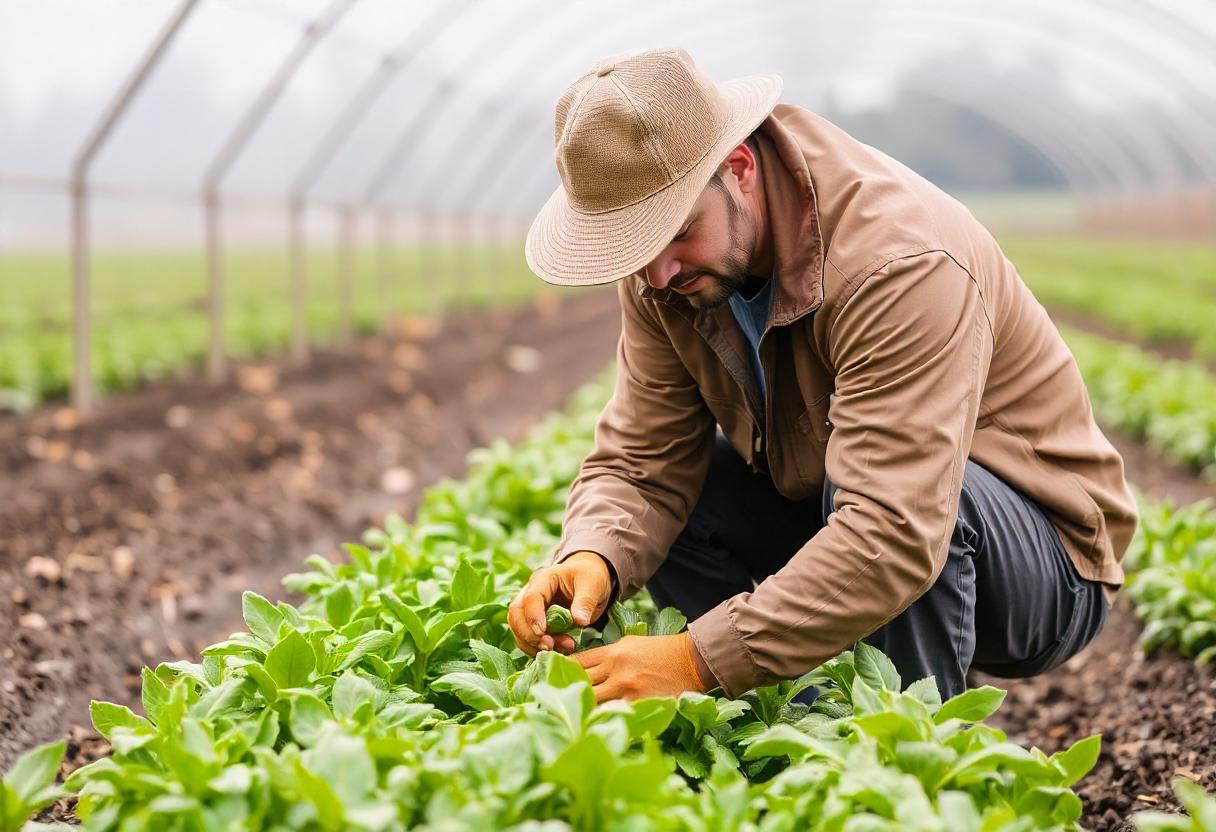
An agriculture technician plays a vital role in supporting and enhancing agricultural practices. They are responsible for a range of tasks that ensure optimal crop production, livestock management, and overall farm efficiency. Their expertise spans various aspects of agriculture, from soil management to pest control.
Responsibilities and Duties
Agriculture technicians perform a variety of duties that are crucial to the successful operation of farms and agricultural businesses. Their responsibilities include:
- Soil Testing and Management: Technicians conduct soil tests to determine nutrient levels, pH, and other critical factors. Based on the results, they recommend soil amendments and fertilizers to improve soil health and crop yield.
- Crop Monitoring: They regularly inspect crops for signs of disease, pests, and nutrient deficiencies. This involves using various diagnostic tools and techniques to assess plant health and recommend appropriate interventions.
- Pest and Disease Control: Agriculture technicians identify and manage pest and disease problems through integrated pest management (IPM) strategies. They may apply pesticides, implement biological control methods, and advise on preventative measures.
- Equipment Maintenance: Technicians are responsible for maintaining and calibrating agricultural equipment such as tractors, irrigation systems, and harvesting machinery. Proper maintenance ensures that equipment operates efficiently and reduces the risk of breakdowns.
- Data Collection and Analysis: Collecting and analyzing data related to crop performance, soil conditions, and environmental factors is a key part of their role. This data helps in making informed decisions about farming practices and improving overall productivity.
Skills and Qualifications
To be effective in their role, agriculture technicians need a diverse set of skills and qualifications, including:
- Technical Expertise: A strong understanding of soil science, plant biology, and pest management is essential. Technicians must be familiar with various agricultural technologies and practices.
- Analytical Skills: The ability to analyze soil tests, crop health data, and other relevant information is crucial for making informed recommendations and decisions.
- Problem-Solving Abilities: Technicians must be adept at diagnosing problems with crops, soil, or equipment and developing effective solutions to address these issues.
- Attention to Detail: Precision in monitoring crop conditions, applying treatments, and handling equipment is important for ensuring successful outcomes and avoiding costly mistakes.
- Communication Skills: Effective communication with farmers, agronomists, and other stakeholders is essential for conveying recommendations, providing advice, and collaborating on agricultural projects.
Education and Training
Most agriculture technicians hold a degree in agricultural science, plant science, soil science, or a related field. Some positions may also require specialized training or certification in areas such as pest management or equipment maintenance. On-the-job training and continuing education are often necessary to keep up with advancements in agricultural technology and practices.
Work Environment
Agriculture technicians work in a variety of settings, including:
- Farms and Ranches: They may work directly on farms, where they assist with day-to-day operations and address any issues that arise.
- Research Facilities: Technicians may work in research settings, contributing to studies on crop development, soil health, and pest control methods.
- Agricultural Supply Companies: They may also be employed by companies that supply agricultural products and services, providing technical support and expertise to customers.
- Government Agencies: Some technicians work for government agencies, where they may be involved in regulatory compliance, agricultural extension services, or environmental protection initiatives.